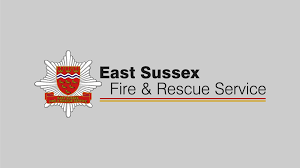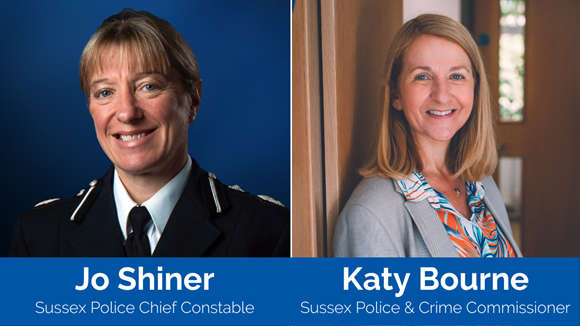
East Sussex Fire and Rescue Service is just days away from introducing changes to drive down the burden of false alarms.
The Service will no longer attend fire alarms operating in low-risk commercial premises at any time from 1 April 2024, unless we receive telephone confirmation that there is a fire. Low-risk premises are classified as premises with no sleeping risk, such as offices, shops, schools, factories, pubs, clubs and restaurants.
This is a change from our current policy where we attend outside of normal working hours and we are asking affected premises to take action now to make sure they are ready.
This is the second phase of this work which is part of our Integrated Risk Management Plan and was agreed by the Fire Authority after public consultation.
Why we are changing - unwanted fire signals
The Service averages around 10,000 operational responses to incidents each year. Automatic Fire Alarm (AFA) systems account for 36% of all these calls, of which a huge 97% turn out to be false alarms. If the Service attends the premises for this false alarm it is subsequently classified as an Unwanted Fire Signal (UwFS)
Of these AFA calls, only 1.3% in non-domestic premises turn out to be fires - an average of 20 per year. 13 of these do not require any firefighting action because the fire will already be out when the crews arrive. The majority of the others only require a minimum amount of action from our crews, ranging from an item being taken outside to the use of portable extinguishers (NB. Annual Averages are based on the financial years 2018-23).
Inevitably, this causes significant disruption to our training, fire safety and community safety work and, crucially, while firefighters are investigating the cause of the alarm, they cannot attend emergencies where lives are at risk.
What action to take
If you are the ‘responsible person’ and have a legal responsibility to manage the fire protection measures in a building, and failure to do so competently can lead to prosecution under the Regulatory Reform (Fire Safety) Order 2005.
To help you prepare for this change in April 2024 we recommend you:
- Review the Fire Risk Assessment and the emergency plan. It may need to be adapted to include a physical check of the area identified on the fire alarm panel, raising the alarm by calling 999 or resetting the automatic fire detection system. Some additional training for fire wardens/fire marshals might be required. Knowing how and when they communicate to the occupiers and when it is safe to return to the building will become part of their role.
- Let your staff know about the changes and any additional roles and responsibilities that they then might have if the fire alarm activates
- Liaise with the fire alarm monitoring company to ensure that they are aware of the changes
- Examine previous activations to see if changes might be beneficial in reducing the number of unwanted fire signals.
Reducing unwanted fire signals will not necessarily reduce the number of false alarms and we know that, even if we never attend, your staff could become complacent.
For example, a smoke detector positioned outside the changing rooms of a gym is set off regularly due to steam from the showers. Staff and gym users may start to ignore the alarm and staff may reset the system without checking the cause. There is therefore, the potential for a fire to spread unchecked.

 Ashdown Forest was packed on Saturday for its annual A Winter’s Day
Ashdown Forest was packed on Saturday for its annual A Winter’s Day
 Nusrat Ghani MP Meets Staff and Patients During Festive Visit to Hospice in the Weald, Five Ashes
Nusrat Ghani MP Meets Staff and Patients During Festive Visit to Hospice in the Weald, Five Ashes
 Eastbourne Airshow Voted UK’s Best Free Show for 6th Year
Eastbourne Airshow Voted UK’s Best Free Show for 6th Year
 Tickets on Sale for Seaside Beer & Cider Festival
Tickets on Sale for Seaside Beer & Cider Festival
 Ashdown Radio Sport
Ashdown Radio Sport
 Brighten the Night returns for third year
Brighten the Night returns for third year
 All aboard! New direct Eastbourne to London service benefits capital commuters
All aboard! New direct Eastbourne to London service benefits capital commuters
 Policing of protests, live facial recognition and police custody arrangements to be discussed at police scrutiny meeting
Policing of protests, live facial recognition and police custody arrangements to be discussed at police scrutiny meeting



